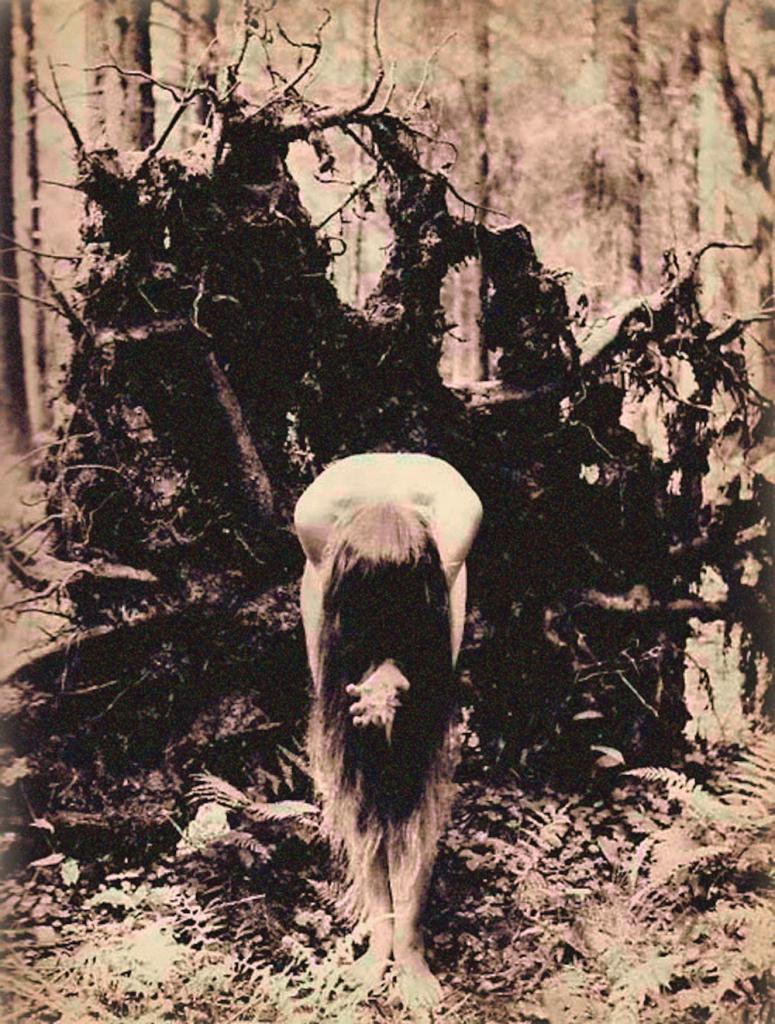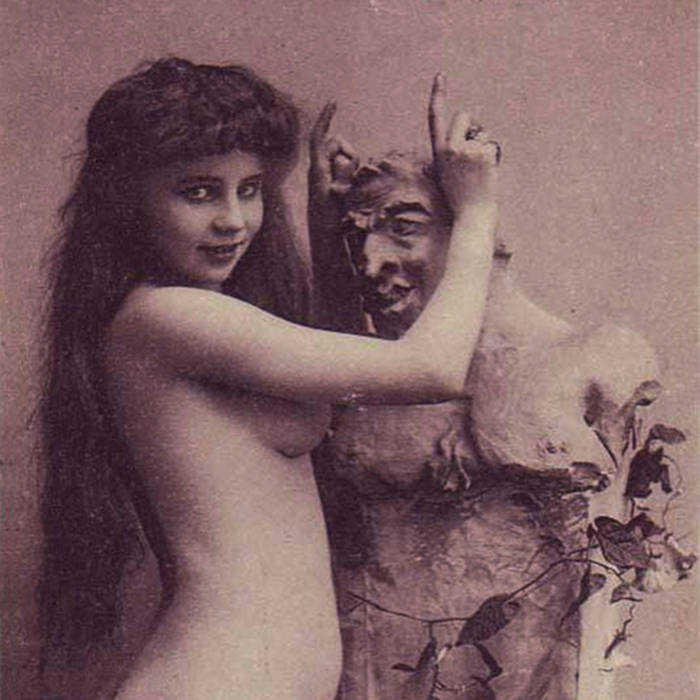Asenath Blake
3/23/22 | CC

Existing in the veil between night and day, life and death, and on the precipice of the known and unknown world is Asenath Blake, a Welsh artist who burns in the darkness and practices witchcraft as a way of life. Blake’s three EPs were each released on nights of great importance—Samhain and Beltane—and feature songs dedicated to the teachings of the occult and to writers such as Arthur Machen, Yelda Paterson and Austin Osman Spare.
Blake is a curious subject in that she prefers not to give too much away with her answers and much like her music, the meanings and subtexts are to be read between the lines. Below she gives us some insight into her practices, both magical and musical, but it seems that further clarity will be found within her bleak songs and strange melodies. Black metal has long been associated with the esoteric and while many artists use their music to channel more vague ideas as to what that means, Blake seems wholly invested in the dark arts.

Asenath Blake is quite the interesting name—do you write under this name as a pseudonym or is this your given name? And if it’s your given name, how did you decide to record under this name?
Knowing whether Asenath Blake is my real name is of little importance, but I’m proud to wear the same surname as the greatest British poet! As a teenager, I eagerly devoured all his Songs, but especially his ‘Marriage of Heaven and Hell’ which reaches a perfect strength and clarity of utterance. As for Asenath, its etymology means Follower of Neith, a demiurgic goddess of Ancient Egypt. It’s also the name of a character from the short story ‘The Thing on the Doorstep’ by H. P. Lovecraft. With such a heritage, it would have been a shame not to use it!
Your music is inspired by occult writers and pagan holidays, what is your interest and involvement with such topics? Austin Osman Spare, Yelda Paterson, for example.
I'm very involved in this field and consider myself a witch. At the moment, it has unfortunately become a sort of cliché to portray a powerful, militant and independent woman—but not too dangerous, not too scary! To prevent this, this figure has been jointly associated with care, youth, beauty and all the pop culture junk that we know. Putting it through black metal is my way of reaffirming the wild and dark side of this archetype.
Yelda Paterson was a hereditary witch who introduced Austin Osman Spare to the Art. She also founded a Welsh coven, which is still active, but I won't say more about it.

How did you become involved in witchcraft? Is it something you’ve felt a connection to since a young age and how has it grown with you over time?
It was my aunt who got me involved in this. She was a wise woman with a spirituality that mixed Christianity and paganism. When I was a child, she sometimes took me to the forest to teach me to recognise some plants and to explain their use. In the evening, she used to read the Mabinogion to me before I went to sleep. When she died, I wanted to deepen the teachings she had introduced me to. It was a way for me to keep the link with her memory.
Do you practice with others or are you more of a solitary personality?
For witchcraft as for music, I prefer to be alone. The dispositions, motivations and sensitivities of everyone are often difficult to reconcile. Moreover, I can hardly stand company.
What kind of inspirations do you receive from your interest in magic and esoterica?
The term inspiration is interesting because it has a long history rooted in the cultic. I like the idea of inhaling the magic, of letting it flow through me. It's a mutual give-and-take: I draw enthusiasm and energy from it, and in return I agree to serve as its vehicle in this world. It's not just a matter of interest, it's a way of seeing and thinking that structures and shapes my relationship with reality.

What drove you to record your music initially? What sparked that interest?
I wanted to see the embers in me become fire, and for my inner flames to make the deep shadows of my listeners shiver and dance. It is not a matter of communion, communication or sharing, just a few crackles suggesting that we are currently alive. From an existential perspective, this idea is extremely scary, but also interesting enough to be recorded in one way or another, left to posterity or oblivion.
What is your training, if any, with music and its production?
I am entirely self-taught. I started playing hammered dulcimer as a child, then hurdy-gurdy before my interest in extreme music pushed me towards the electric guitar. I'm also very interested in synthesizers. As far as production, I got into it with my first EP and you can hear it! It seems that I’ve already made some progress since then. Although the dirty and amateurish aesthetic may appeal, working on technique has always been my way of dealing with anxiety, so I’m improving rapidly.
Hammered dulcimer is not an instrument that many would consider a “starter” instrument – what led you to begin with this one in particular, and then to the hurdy-gurdy?
My parents are big fans of folk music. One plays the fiddle and the other the Celtic harp as enlightened amateurs, so I was immersed in this culture since childhood. When I was about twelve, they asked me if I wanted to play an instrument. I immediately chose the hammered dulcimer, which I had heard once at a village festival. The hurdy-gurdy came much later. It was only in my teens that I turned to metal, but I think my music still bears traces of that initial background.
You tend to release your music on important dates – Samhain, Beltane – why these dates and what is their significance to you?
In Wales, the nights preceding them are called Nos Galan Gaeaf and Nos Galan Haf respectively. These are two important Sabbaths of the year, dates on which the borders with the Otherworld are the thinnest, the most porous. It is therefore customary to make certain offerings, be it food, alcohol, milk, blood, hair or whatever. For my part, I thought that the best thing I could bring was my music, and a few hints suggest that it pleased!
How does your Welsh heritage play into your music? Do you speak the language or use Welsh myths/legends in your work?
Indeed, these roots are important to me. I mentioned them indirectly with my Voorish Songs based on a short story by Arthur Machen, a first-rate Welsh author who was also a member of the Hermetic Order of the Golden Dawn. At one point I wondered if I was going to use the marwnadau (medieval Welsh elegies) as inspiration for an EP, but other themes are currently appealing me more, such as veneficium, the art of poisons for example. I've used some Welsh words in my songs but I actually sing in Chian language, a kind of glossolalia that's almost personal to me.
What do you hope to achieve with your music? Both professionally and personally.
In general, it's better not to have too many expectations, it avoids disappointment. However, I would like my music to surprise me first. Professionally speaking, the pandemic has made the already crisis-ridden cultural sector even worse. To bet on this at the moment is a bit foolish for a young artist. That said, I don't have any great needs because I like to keep a certain frugality. The last title of my Zoëtic Songs is called ‘A Life of Poverty and Sorcery’, that suits me.



